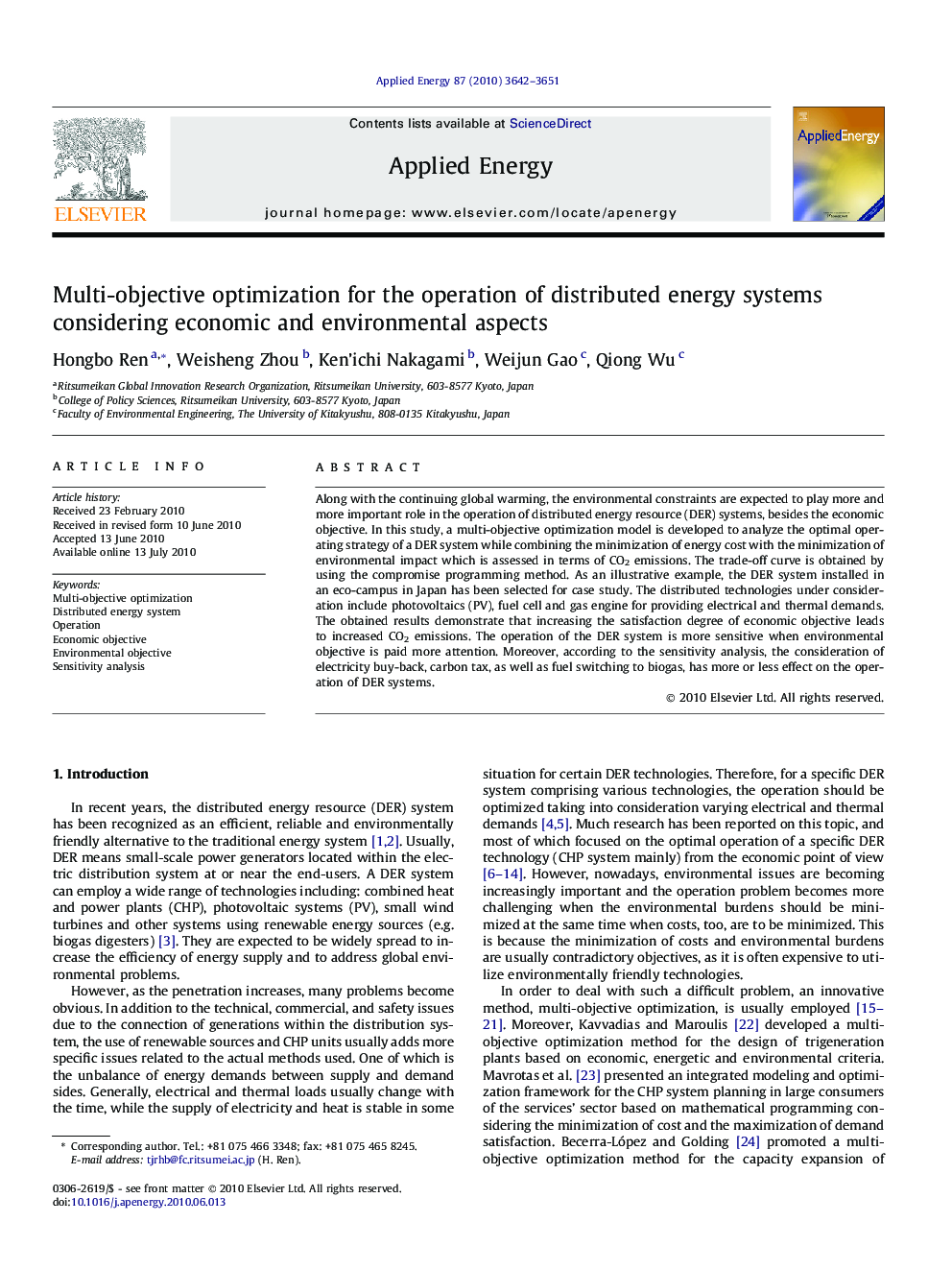| Article ID | Journal | Published Year | Pages | File Type |
|---|---|---|---|---|
| 244570 | Applied Energy | 2010 | 10 Pages |
Along with the continuing global warming, the environmental constraints are expected to play more and more important role in the operation of distributed energy resource (DER) systems, besides the economic objective. In this study, a multi-objective optimization model is developed to analyze the optimal operating strategy of a DER system while combining the minimization of energy cost with the minimization of environmental impact which is assessed in terms of CO2 emissions. The trade-off curve is obtained by using the compromise programming method. As an illustrative example, the DER system installed in an eco-campus in Japan has been selected for case study. The distributed technologies under consideration include photovoltaics (PV), fuel cell and gas engine for providing electrical and thermal demands. The obtained results demonstrate that increasing the satisfaction degree of economic objective leads to increased CO2 emissions. The operation of the DER system is more sensitive when environmental objective is paid more attention. Moreover, according to the sensitivity analysis, the consideration of electricity buy-back, carbon tax, as well as fuel switching to biogas, has more or less effect on the operation of DER systems.
